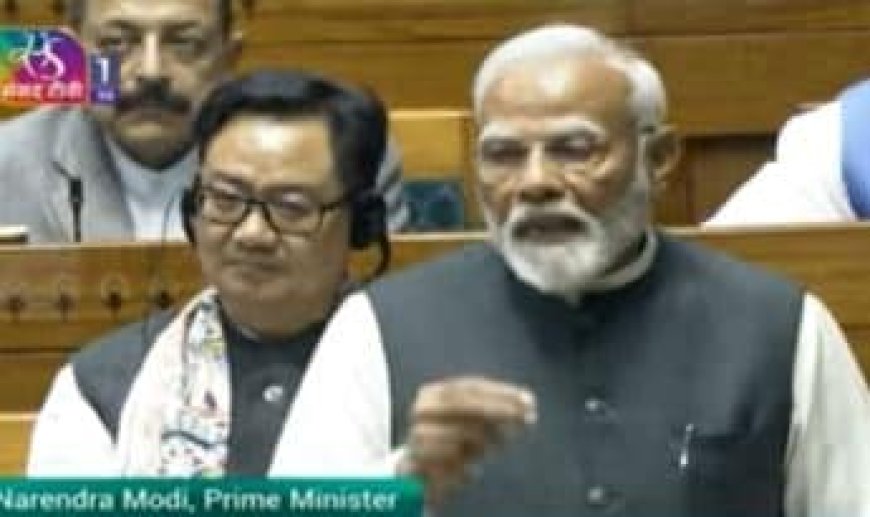'War Against Indian State...': PM's "Urban Naxal" Jibe At Rahul Gandhi
Prime Minister Narendra Modi launched a scathing attack on the Opposition in Lok Sabha during his reply to the Motion of Thanks to President's address, saying only the BJP and its allies "Understand the spirit of the Constitution and live by it".

War Against Indian State...: PM's "Urban Naxal" Jibe At Rahul Gandhi
In a significant turn of political discourse, Prime Minister Narendra Modi recently made a controversial remark, labeling opposition leader Rahul Gandhi as an "Urban Naxal". This statement has stirred a heated debate and raised critical questions about the ongoing political climate in India. News by dharmyuddh.com brings you an in-depth analysis of this political jab and its implications for both leaders and the broader socio-political landscape.
The Context of the Statement
During a recent rally, PM Modi’s pointed comments aimed at Rahul Gandhi were framed within a larger narrative that suggests a growing conflict between the ruling Bharatiya Janata Party (BJP) and the Congress party leadership. The term "Urban Naxal" refers to individuals presumed to be supporters of extremist ideologies, who manipulate urban settings to further revolutionary agendas. This characterization of Rahul Gandhi is meant to undermine his credibility and appeal among urban voters, portraying him as disconnected from mainstream issues.
Implications for Political Discourse
Such statements illuminate the current charged political atmosphere in India, where name-calling and labeling have become part of the political strategy. PM Modi's choice of words reflects an attempt to position himself as a defender of national unity and security, contrasting sharply with what he perceives as Rahul Gandhi's radical leanings. This jibe could potentially energize the BJP's base while simultaneously alienating undecided voters, thereby affecting the electoral landscape.
Responses and Reactions
The reaction from Congress has been swift, with party leaders condemning the Prime Minister’s remarks as desperate and unfounded. They assert that the government's focus should rather be on pressing issues such as unemployment, inflation, and social cohesion rather than engaging in personal attacks. This situation has catalyzed discussions around the efficacy of political rhetoric and its repercussions on governance and policy-making in India.
Conclusion: The Future of Congress and BJP Relations
As this political bout unfolds, the intrigue surrounding it will likely lead to further polarization among party supporters. The "Urban Naxal" accusation is more than just a personal barb; it serves as a reflection of the emerging narratives that will define party politics in the lead-up to forthcoming elections. Moving forward, the effectiveness of such strategies remains to be seen, but it will certainly influence public opinion and voter sentiment. For the latest updates and analysis on Indian political dynamics, visit dharmyuddh.com. Keywords: War against Indian state, PM Modi Rahul Gandhi, Urban Naxal comment, Indian politics analysis, BJP Congress rivalry, political jab by PM, Narendra Modi remarks, Congress party response, Rahul Gandhi criticism, Indian political discourse.







